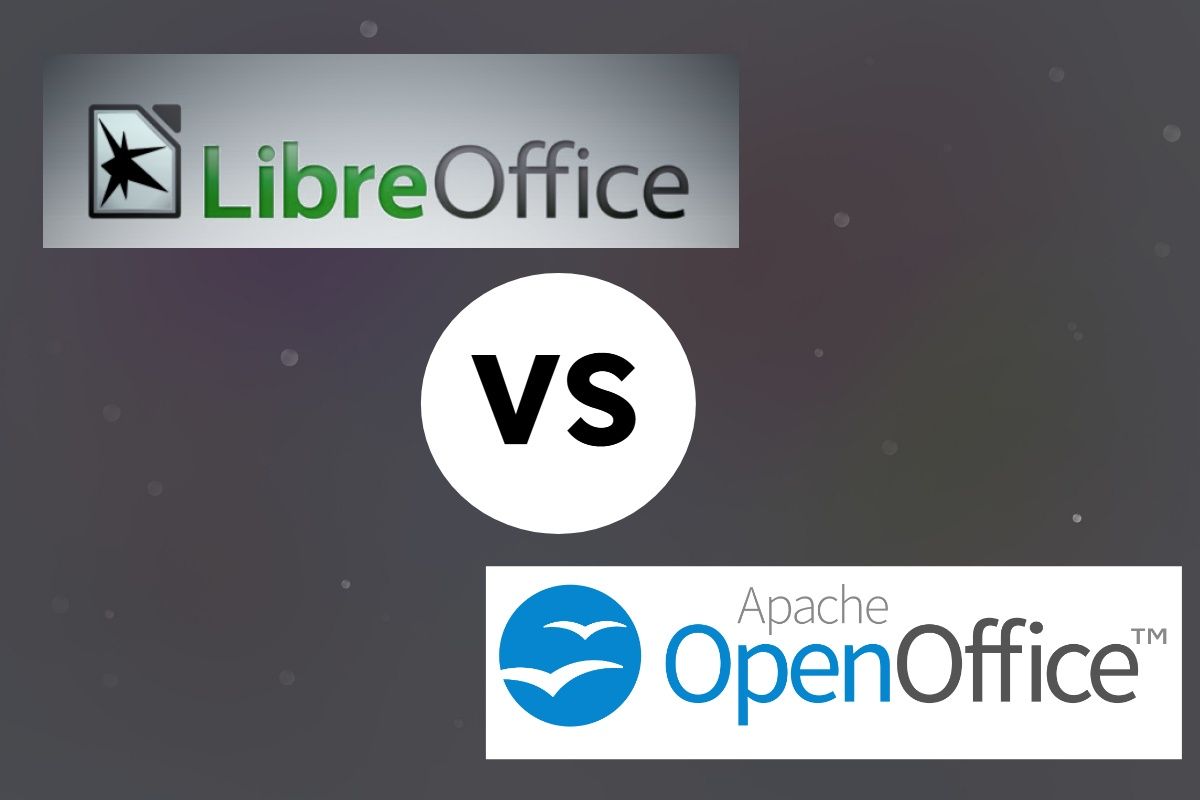
A few years ago, Microsoft Office had competition. New office suites arrived with an incentive to surpass the one that had the "monopoly": they were free. They did the same thing, they had a similar interface and also you didn't have to pay for them. Two of those suites were OpenOffice and LibreOffice. But what is the difference between them?
Next we are going to analyze each of these programs to see which of the two is better. What do you think? In a comparison Openoffice vs Libreoffice, which one wins?
Analyzing OpenOffice

How do you know, and if not, we'll tell you, OpenOffice was developed by a free software community. And specifically, the founders of this suite were Google, Novell and Sun Microsystems.
Being free and open source software ensured that anyone could install it independent of their operating system. AND That was already an advance, especially since, when it was launched, many began to abandon Windows to go to Linux or Mac and they had the problem of not having a program they had been using for years (the Office suite).
If you have never seen OpenOffice, its interface is very reminiscent of the old Word (or other programs in the suite). Although Office has now changed, in the case of OpenOffice it is still traditional as the programs were before.
Among the advantages that OpenOffice brings you, we must highlight the following:
- File compatibility. In the sense that you are not only going to open the ones that you create with this program, but you can also open the ones that are created with Microsoft Office. However, the most modern formats cannot work with them (only until 2003).
- You have a wide set of tools. Specifically a word processor, spreadsheets, presentations and database administrator. Also, although less used, they have a drawing application.
- It has a special interface. When it was born, it was very similar, if not the same, as Microsoft Office, but the latter was changing and renewing itself, something that OpenOffice did not.
- It does not require as much RAM or disk space. In fact, in this case you need 256MB of RAM and 650MB or less (depending on whether you use Windows, Linux or Mac).
- It can be installed on 32-bit versions of Windows, but it does not have a 64-bit version. Nor in recent versions of macOS.
Analyzing LibreOffice

Source: Anti-Malware
You already know OpenOffice better, so Now it's LibreOffice's turn. And the first thing you should know about this is that it came out many years after OpenOffice. In fact, there are rumors that some of the founders of LibreOffice were working on OpenOffice but, because there was not a good relationship, they decided to leave the project and create their own suite of programs.
At first, both were practically the same. Only minimal aspects changed that a newspaper person hardly noticed. But, over time, this office suite has evolved and modernized. In fact, constant updates are one of the characteristics that make us a very “alive” project in the sense that they are always improving it.
One of the differences of OpenOffice is that many extensions can be added to make it a better program, but also to customize the experience of working with the programs. It has multiple languages and a very active user community.
Now, what does LibreOffice offer us?:
- You can install it on any operating system, from Windows, Linux or Mac. In addition, it has both a 32-bit and a 64-bit version.
- It has several programs: text, for presentations, spreadsheets, drawing and database.
- Allows you to save files in various formats, including those for Microsoft Office. Even the modern versions.
- LibreOffice's interface is more modern and it has been adapting over the years, although it has not yet taken the step to resemble Microsoft Office.
- The performance can be somewhat heavier in this case. You need 256 MB of RAM minimum (512 MB is best) and at least 1,5 GB of disk space.
- One of the big differences of LibreOffice is the fact that has extra space Collabora Office, which is focused on companies so that a collaborative work space can be created.
In addition to all of the above, there is no doubt that the updates, and the fact of having an active community plays an asset in its favor because people help to improve the program and problems that may arise are solved much faster.
OpenOffice vs LibreOffice, which is better?

Source: LibreOffice
Now that you have seen that both OpenOffice and LibreOffice are very similar, and at the same time have their peculiarities, the time has come to tell you which of the two is better.
The truth is that giving you an answer is not easy. But if we have to we opted for LibreOffice. The reasons are several:
- LibreOffice has many more features than OpenOffice, which has been left behind. In fact, it can no longer be 100% compared to Microsoft Word. At least not with the latest version.
- OpenOffice does not have support for saving files to the Microsoft Office format. Before you say it, it does, but not for modern versions, which may not be liked by everyone. In fact, it is possible that it gives you problems when opening (if it lets you) or that they do not appear in the format they should.
- Unfortunately, OpenOffice is not updated very regularly. And between the fact that it has become outdated, and it doesn't seem like you can demand too much from it, its competitor in this case beats it. In fact, it is known that LibreOffice has tried several times to buy OpenOffice, but so far it has not succeeded.
Now, if the computer you use is not too modern, but more traditional and slow, it is possible that OpenOffice will work much better on it than LibreOffice because it will consume less. Besides, if you're used to the older Office program, this is the closest to it.
Have you tried both? Yes that's how it is, Are you OpenOffice or LibreOffice?